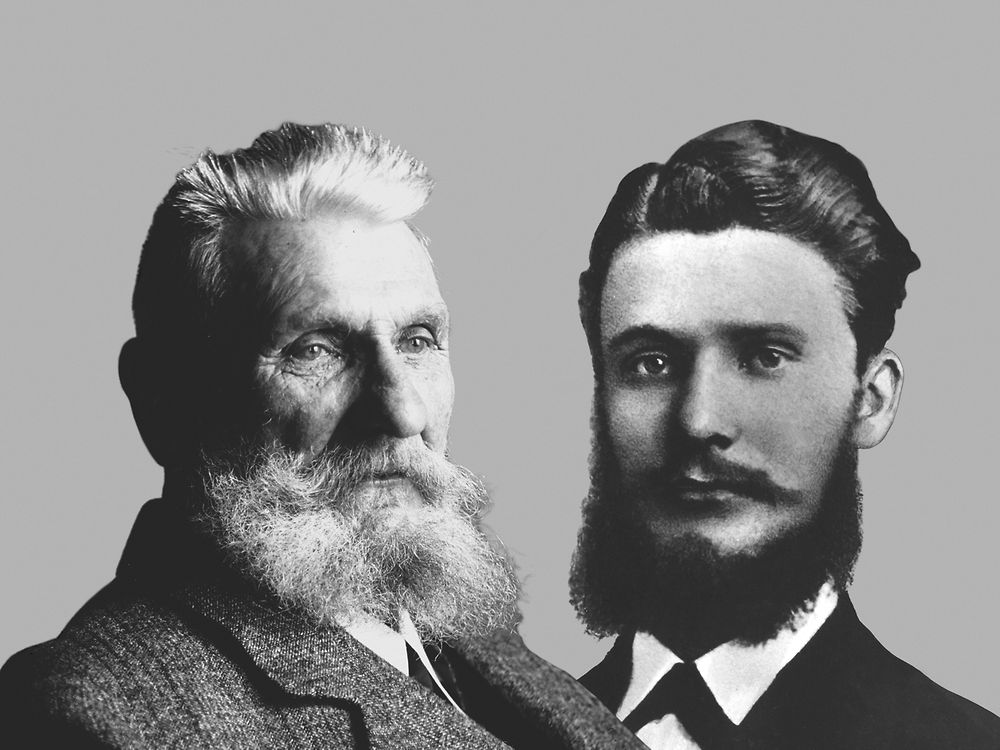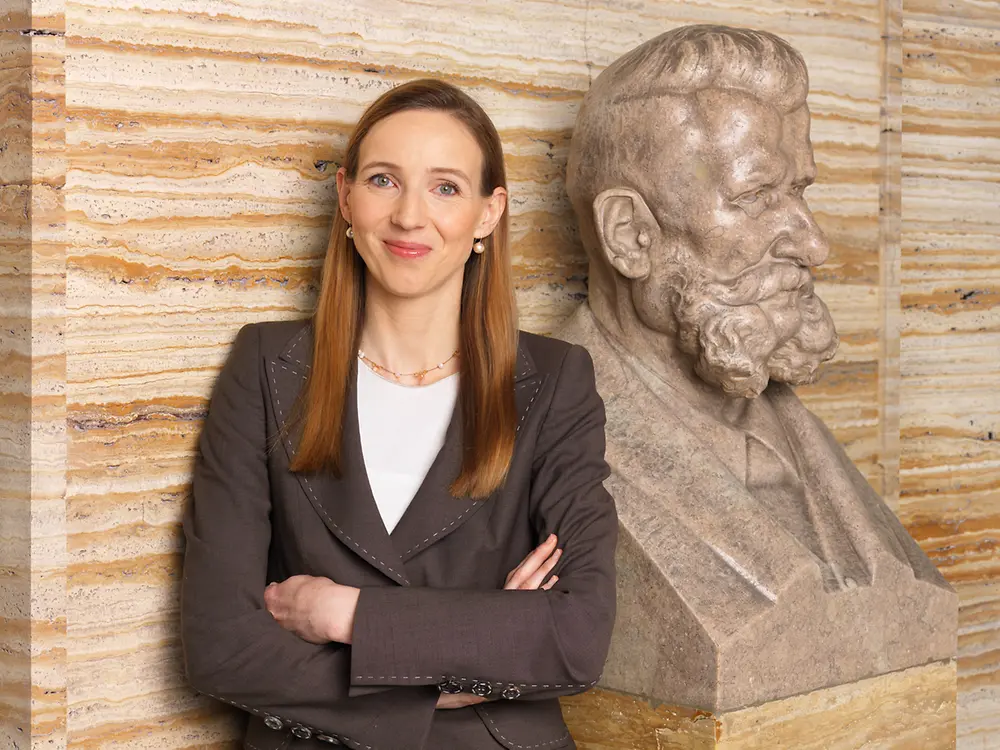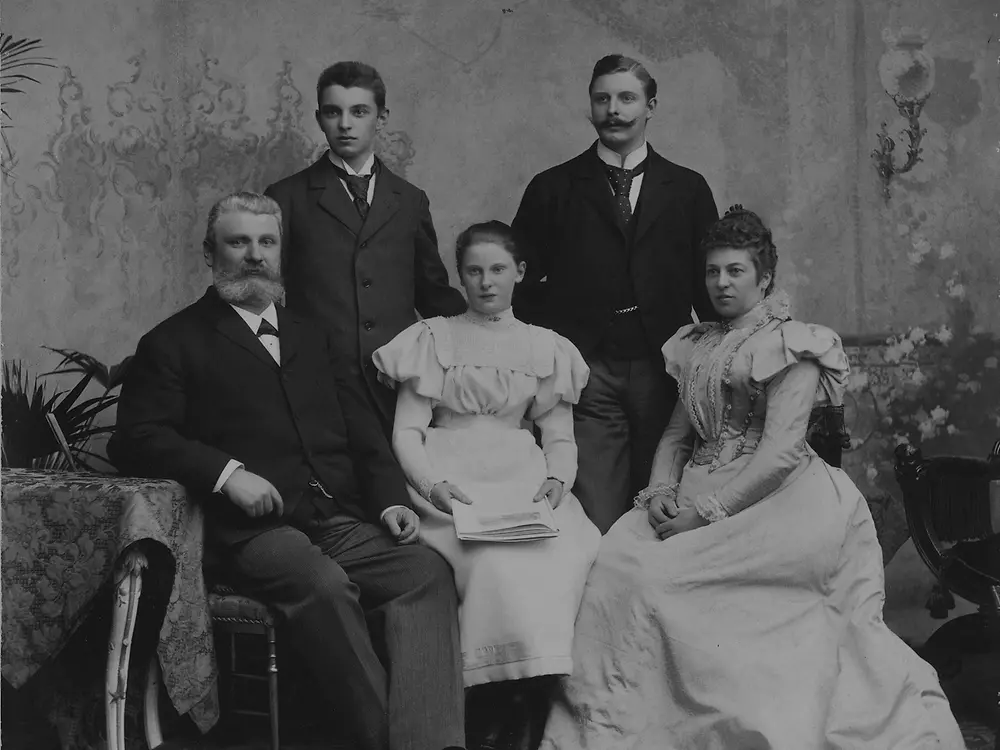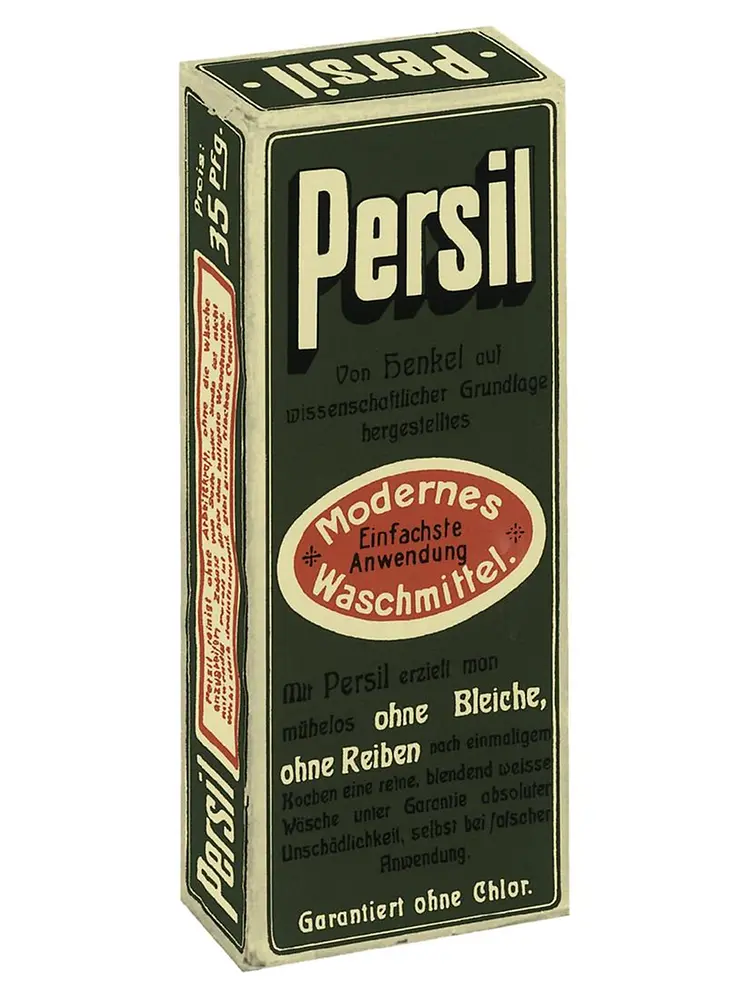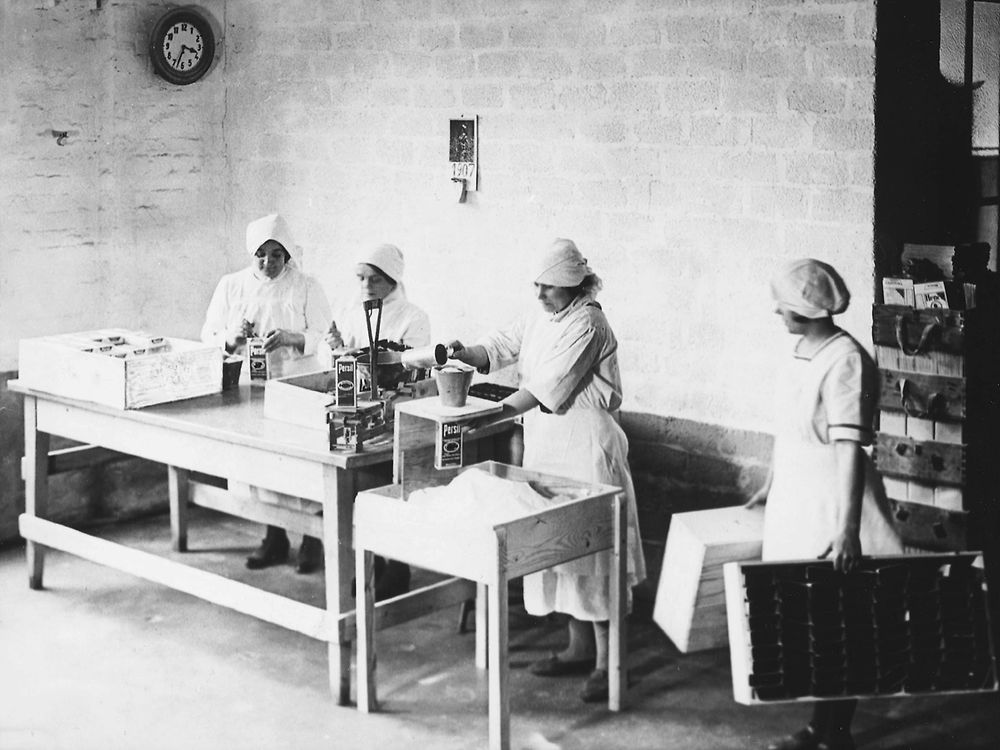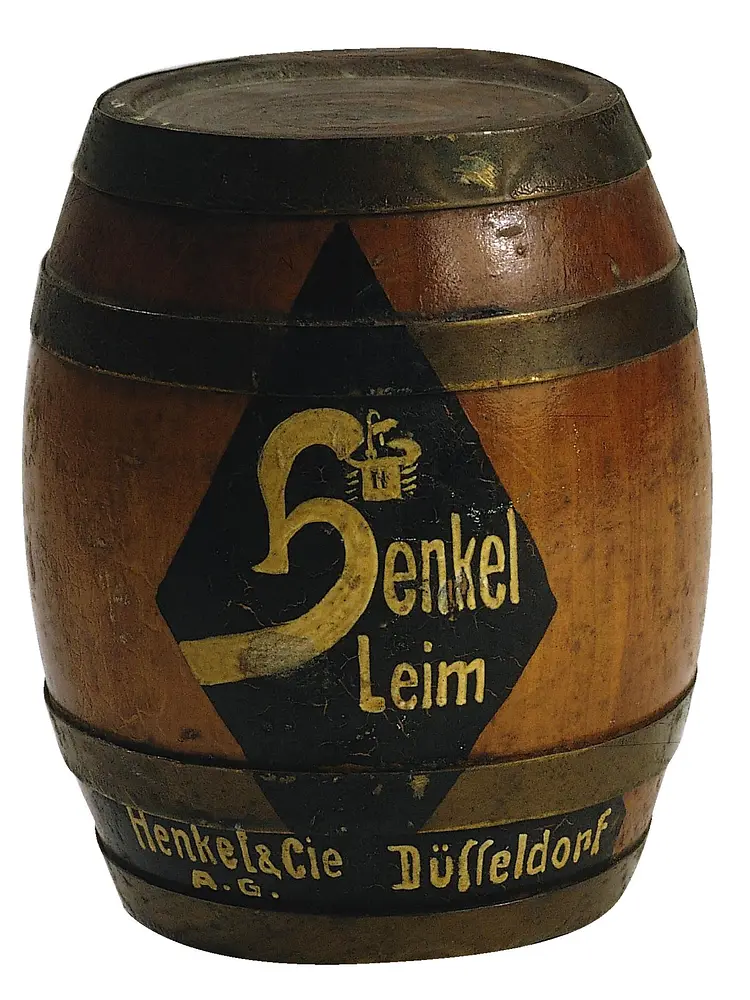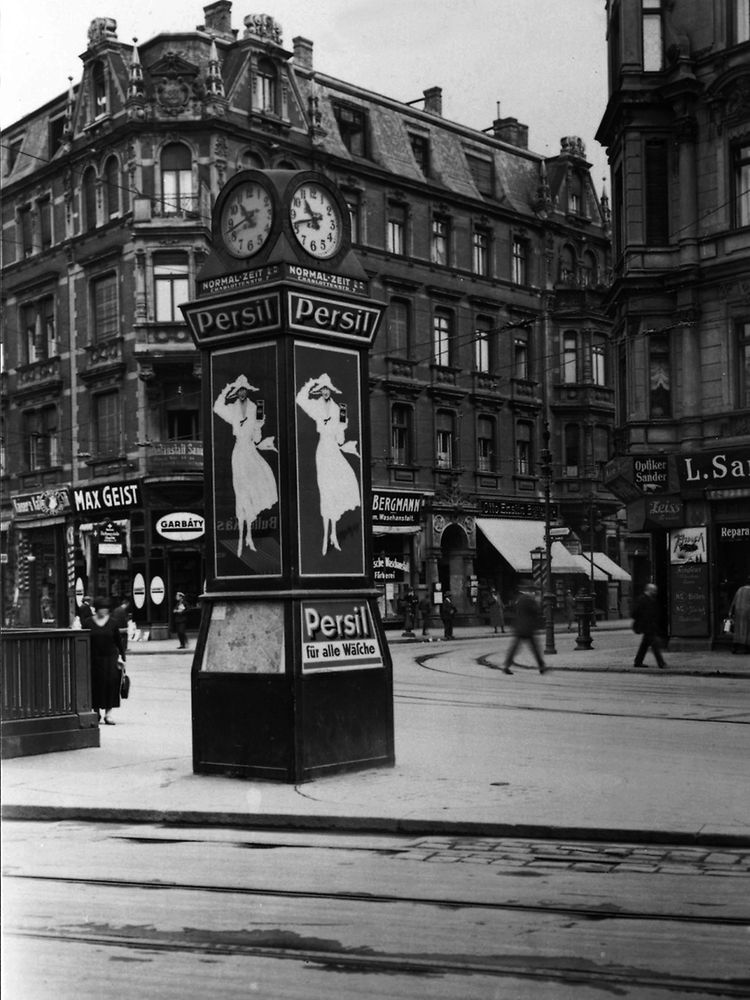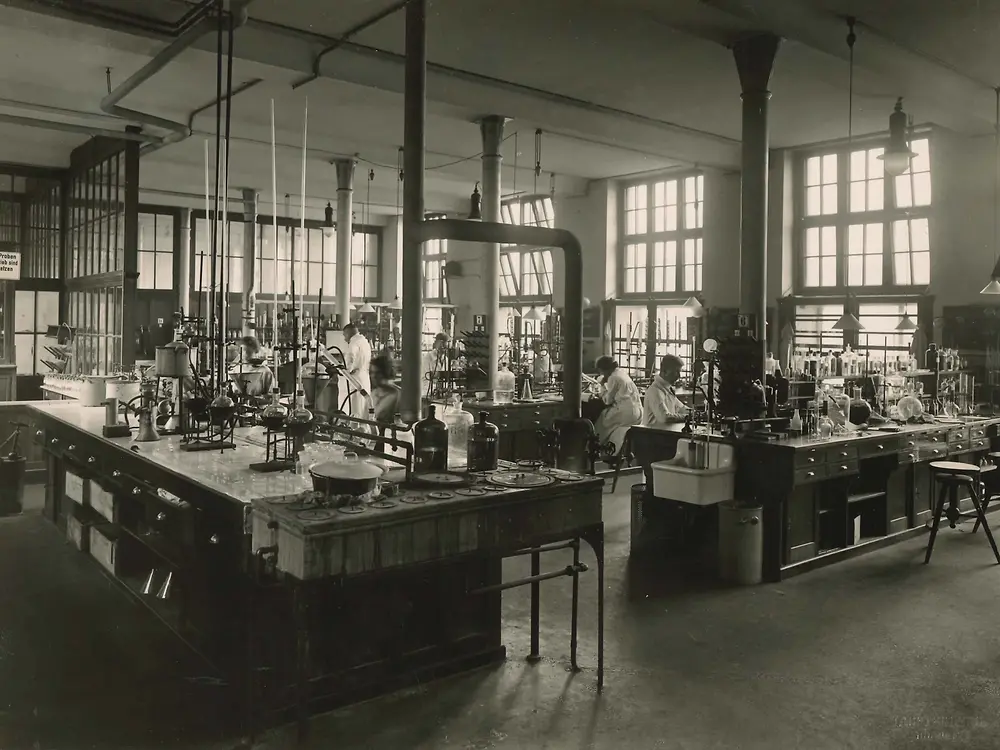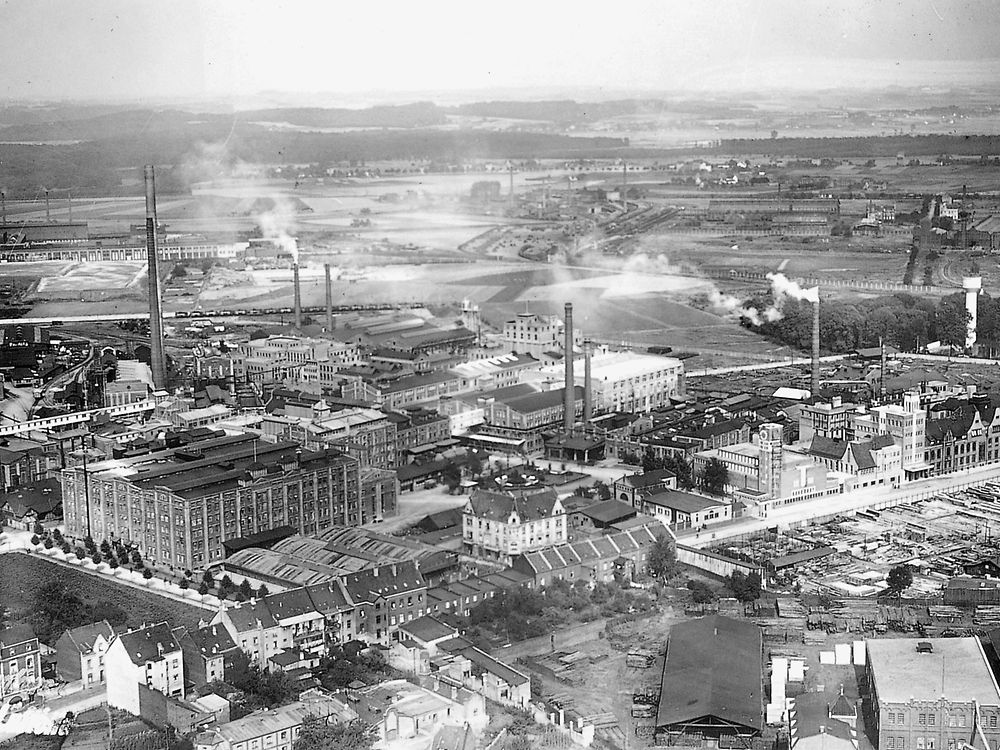Discover the brands and technologies from our business units Henkel Adhesive Technologies and Henkel Consumer Brands.
15. 3. 2023 Düsseldorf / Germany
Fritz Henkel: A pioneer turns 175
On March 20, 2023, Henkel celebrates the 175th birthday of its founder Fritz Henkel. His values, his pioneering spirit and his sense of responsibility continue to shape the company culture to this day.
The company honors Fritz Henkel's 175th birthday with a historical exhibition at Henkel’s headquarters in Düsseldorf, where employees can relive the story of their company founder. Here, historical pictures, objects and documents illustrate his childhood and first steps towards self-employment, his products and their innovative marketing, as well as his commitment to his employees. As of March 20, 2023, the contents of the exhibition will also be available to the public on a bilingual website: https://www.fritz-henkel.com.
“My great-great-grandfather Fritz Henkel was a true entrepreneur and pioneer by heart. He has taken new paths, not only in product development, but also in marketing and in the way he led his company. With his innovations, he revolutionized the everyday lives of thousands of people, especially of women,” says Dr. Simone Bagel-Trah, Chairwoman of the Supervisory Board and Shareholders’ Committee of Henkel. “He did not only have his customers in mind, but he also cared for his employees, the ‘Henkelaner’. Long before the term sustainability was born, he embraced responsible entrepreneurship in balance with society and the environment. He always thought about what his decisions and actions meant for future generations. To this day, this spirit can still be felt at Henkel.”
“With his determination, pioneering spirit and sense of responsibility for his company, employees and society, Fritz Henkel laid the foundation for the long success story of our company. Until today, his ideas, achievements and values are still embedded in our company culture. They inspire and guide us and are also reflected in our company’s purpose: Pioneers at heart for the good of generations,” says Carsten Knobel, CEO of Henkel.
September 26, 1876: Fritz Henkel founds the company Henkel
When Friedrich Karl Henkel (known as Fritz) is born in Vöhl, Germany, in 1848, the chemical industry is on the rise. From an early age, the son of Johanette and Johann Jost Henkel is fascinated by chemistry and mathematics. At the age of 17, he moves to Elberfeld, a blooming industrial town of the 19th century, to pursue a commercial apprenticeship at a chemical company. Due to his entrepreneurial talent, he quickly advances his career and is appointed managing director.
In 1876, at the age of just 28, Fritz Henkel and two business partners found the company Henkel & Cie in Aachen. Their aim is to develop a more efficient laundry detergent with a new washing method. At that time, washing clothes involves heavy physical effort for women, and the laundry is also exposed to enormous strain by the manual washing process. Their very first product “Universal-Waschmittel” (Universal Detergent) does not yet bring the desired success. So, they further develop their detergents and, just two years later, launch “Henkel's Bleich-Soda” – the first successful product. With this, Fritz Henkel sets the foundation for the company, which today has total sales of over 20 billion euros and employs around 50,000 people all over the world.
As both his business partners withdraw from the business, Fritz Henkel takes over sole responsibility for the company in 1879. Due to the company’s steady growth, he looks for a bigger premise with additional expansion opportunities as well as connection to the railway network and to the river Rhine. He finds what he is looking for in Düsseldorf-Holthausen, where production begins on March 9, 1900, with around 80 employees. The first international branches in Austria and Switzerland follow.
Iconic brand Persil
In 1907, Henkel launches a new laundry detergent called “Persil”: The world’s first self-acting detergent makes time-consuming washing by hand easier, and thus revolutionizes the everyday lives of many people. Soon Henkel becomes the leader in the German laundry detergent market and remains so today. In the merchant stores at that time, Henkel products were always a specialty: they are packaged in standardized product sachets with a high recognition value and sold at a fixed price. Offering laundry detergents as a branded article with a reliable quality promise is new at the time.
After the end of the First World War and the subsequent occupation of the Ruhr, a shortage of adhesives for detergent packaging is imminent. Anticipating this, Henkel begins to produce its own adhesives, initially only to glue its own product packaging. Fritz Henkel, however, sees an opportunity for a new business area: One year later, exactly 100 years ago, Henkel adhesives are sold to other companies for the first time. Today, Henkel is the world market leader for adhesives and sealants.
In addition to his innovative business and product ideas, Fritz Henkel takes a new approach to advertising, opting for innovative methods. These include large Persil clocks, which can still be spotted in many German cities today, or white-clad men carrying Persil parasols while strolling along shopping streets. Even the sky is used for advertising. Huge spotlights project the Persil lettering into the clouds in the dark, and airplanes write the product name in the sky with white smoke. As of 1922, the Lady in White becomes the iconic advertising figure for Persil and would accompany Henkel for many decades.
Responsibility for employees
On the company's 50th anniversary in 1926, Fritz Henkel says: “The best, that was achieved through my work, did not arise from my thoughts, but from my employees in mutual cooperation.” This shows his modern understanding of the importance of employees for the company's success. Social benefits, for example, are offered to his employees at a very early stage, long before they become a standard. These include, for example, pension funds for employees, the deployment of a full-time nurse in the company’s first aid station in Düsseldorf and maternity and infant care to support parents. Beyond that, he is involved with the general public as well as in the communities and cities in which he lives and works.
Together with his wife Elisabeth, Fritz Henkel has three children: Fritz Junior, Hugo and Emmy. In his will, Fritz Henkel lays down that his sons Fritz Junior and Hugo are to receive 40 percent each of the company’s capital funds. His daughter Emmy is to inherit 20 percent of the capital. Considering the daughter as well was a progressive decision at that time. After the sudden death of Fritz Junior and, shortly thereafter, of Fritz Henkel in 1930, Dr. Hugo Henkel takes over the management of the company. In 1980, the Henkel family decides to withdraw from operational management of the company and hands over the chair of the Central Management Board to Dr. Dr. Helmut Sihler. Nevertheless, to this day, the descendants of the three children, organized in the family branches “Fritz”, “Hugo”, and “Emmy” still hold the majority of the ordinary shares in the company.


